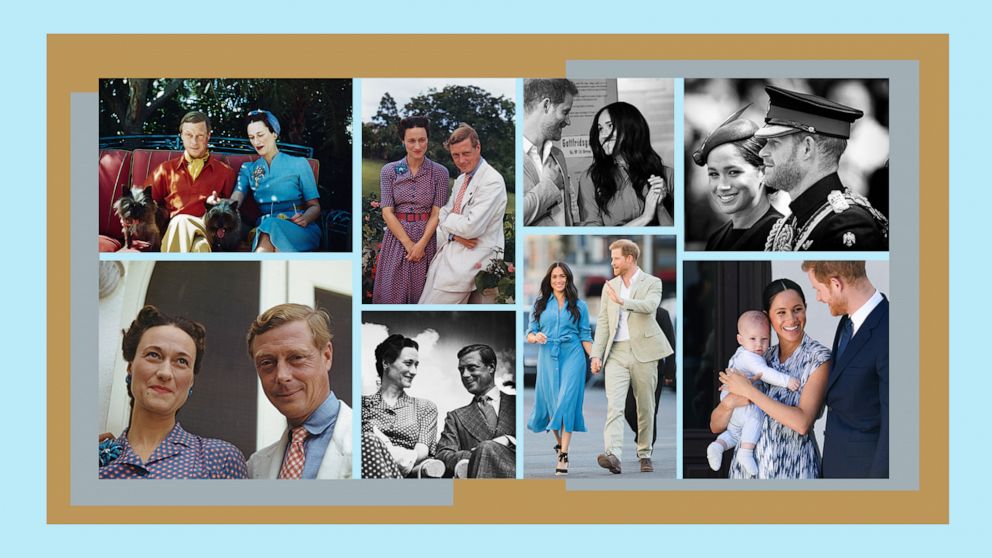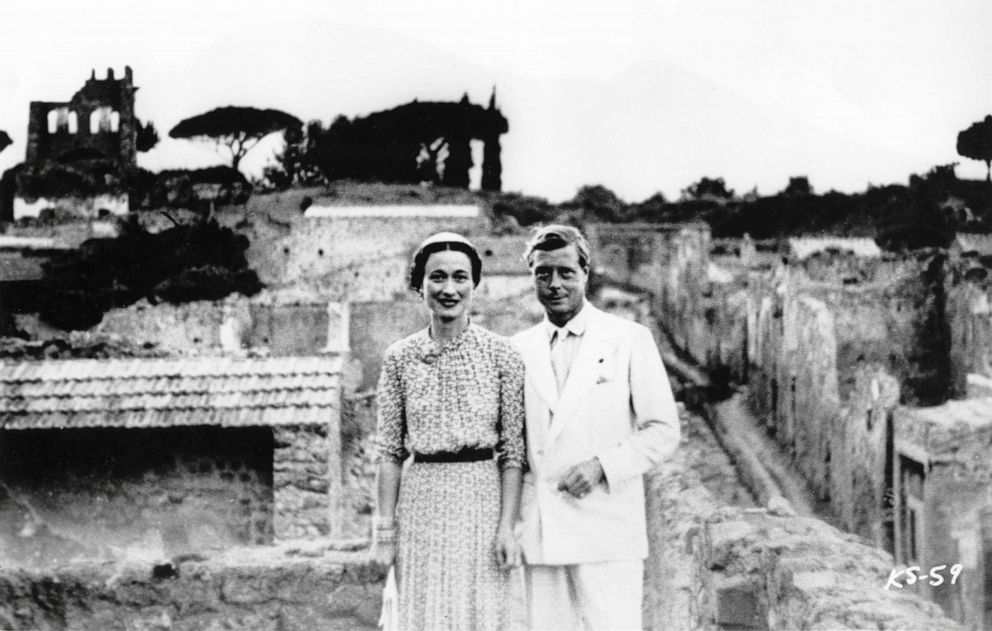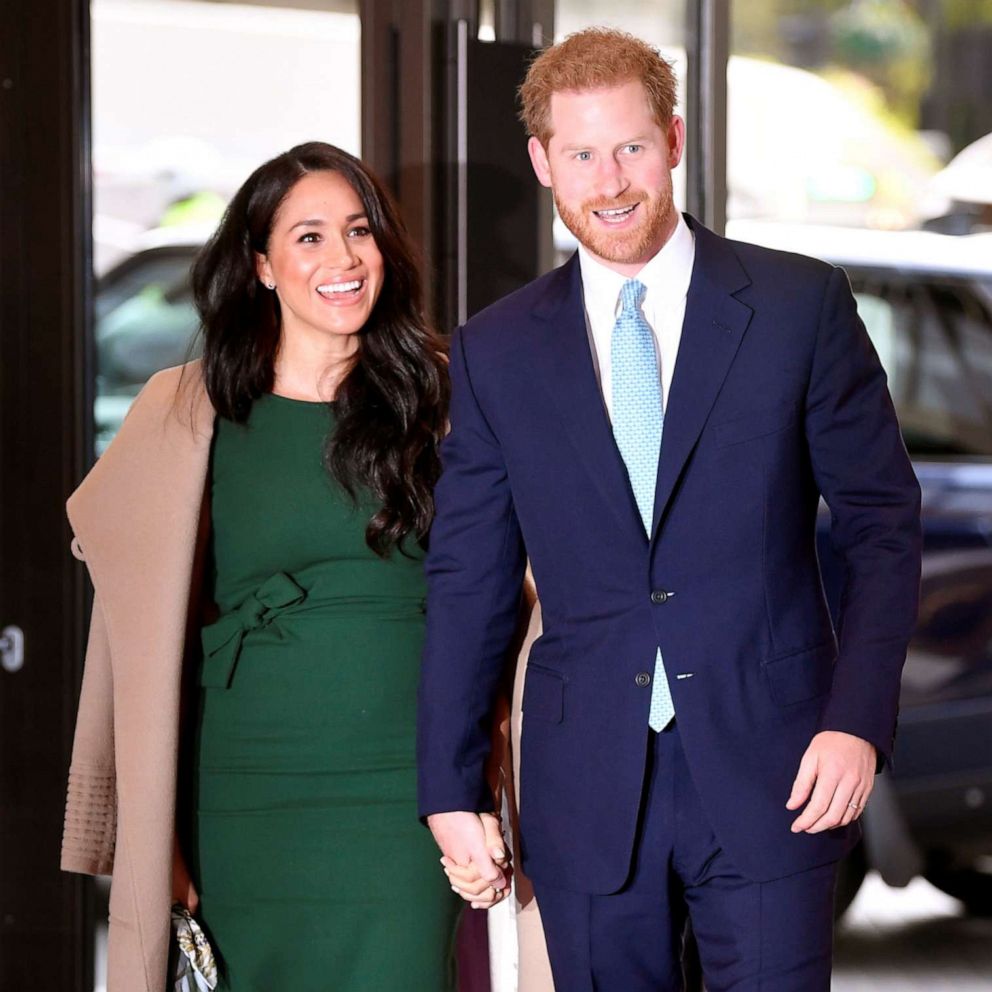What Prince Harry, Meghan can learn from the last royal to exit the family, King Edward VIII
Prince Harry and Meghan's decision to no longer be working members of Britain's royal family is bringing to mind the last example of a royal leaving for love, King Edward VIII.
Edward abdicated the throne in 1936 so that he could marry Wallis Simpson, who like Meghan, was an American divorcée.
Editor’s Picks
Edward and Simpson became known as the Duke and Duchess of Windsor and lived largely in exile in France.
There are lessons Harry and Meghan may take away from Edward and Simpson's post-royal experience, according to Anna Pasternak, the British author of "The Real Wallis Simpson: A New History of the American Divorcée Who Became the Duchess of Windsor."

Here, Pasternak writes why Harry and Meghan, the Duke and Duchess of Sussex, "might pause to consider" the Duke and Duchess of Windsor's journey outside the royal bubble.
On Sunday night, the Duke of Sussex gave a poignant abdication speech. He spoke of his “great sadness” to be stepping down from royal life.
This has undoubtedly been the royal family’s most dramatic rupture since King Edward VIII abdicated in 1936 to marry his American Wallis Simpson.
Harry may not be king but he is a beloved prince, forsaking his people, prestige and position to embark on a new life outside the U.K. with the woman he loves.
Lucrative deals will no doubt pile up for the Sussexes.
But they might pause to consider the experience of the Duke and Duchess of Windsor, who became unfulfilled, jet-setting celebrities, longing to return to England after being in exile. They craved the structure and support of royal life.
Underlying their marriage was a seam of guilt. Edward had turned Wallis into the most hated woman in the world, while she felt responsible for taking him away from his country. Their marriage became an overcompensation for this. It had to work; they couldn’t let a sacrifice of such monumental proportion be in vain.
This “us against the world” mentality creates marital pressure. Wallis often felt choked by her husband’s constant doting presence but accepted this.
While Meghan, unlike the Duchess of Windsor, is a modern woman with a career and child, she will now have a heightened awareness of the new role she has to play in safeguarding Harry’s happiness. Without his family and roster of royal duties, Harry has to find a new sense of purpose.
The Duke of Windsor, not much older than Harry when he abdicated, found that idle restlessness gave him time to dwell on familial injustices.

While Wallis filled his life as much as she could, neither had anticipated the isolation of exile.
She told the writer Gore Vidal that the morning after they married, she woke up to find her husband standing by her bed: “With this innocent smile saying ‘And now what do we do?’ And my heart sank. Here was someone whose everyday had been arranged for him all his life and now I was the one who was going to take the place of the entire British government, trying to think up things to do.”
Where Wallis triumphed was ensuring that their 35-year marriage was a success. Wise and sensitive, she recognized early on that it was futile to try to alter public opinion. Instead, she contained her suffering with laudable dignity.
Due to the hate mail she received post the abdication, she said, 'Every morning my world goes to pieces on my breakfast tray.” She survived by strengthening her sense of self and containing her inner world. She knew who she was, her friends knew, her husband adored her and that had to be enough.
She created sumptuous homes, loved her dogs, tried to effect reconciliation between Edward and his mother, Queen Mary, but most of all, she counted her blessings. Meghan would do well to adopt Wallis’ sophisticated credo.






